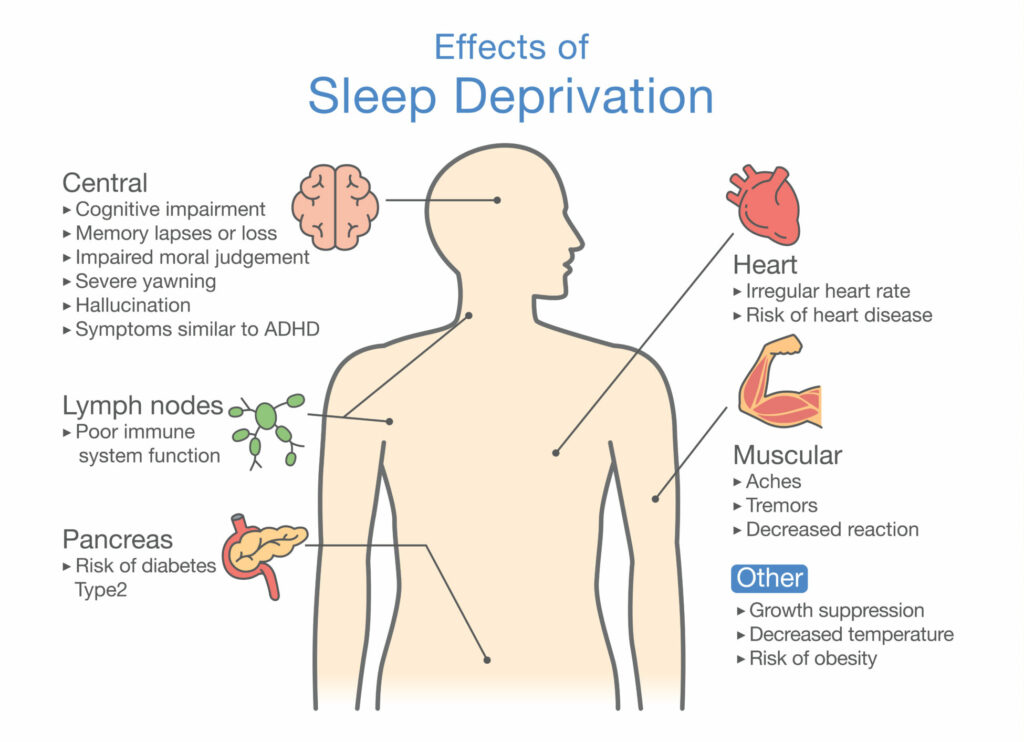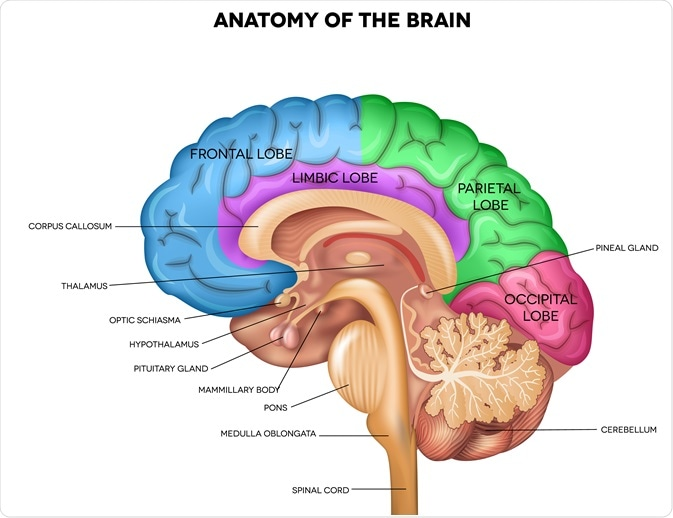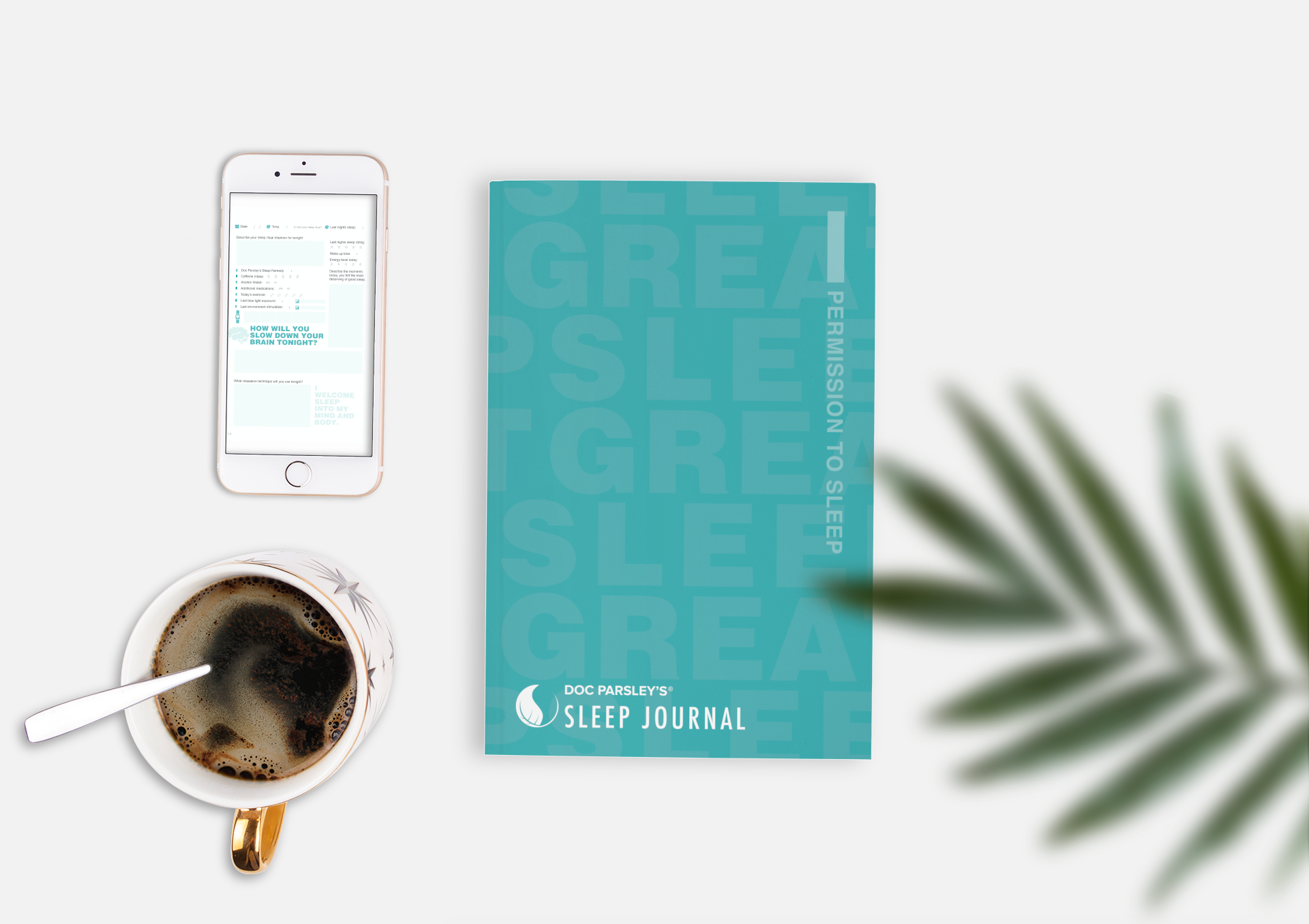What Happens When The Brain Doesn’t Sleep?
What happens when the brain doesn’t sleep?
Lost memories, anger, cerebral shrinkage, slurred speech, impaired wit, and risky decisions are just the beginning of the causes of consistent sleep deprivation to the brain. Our mood, emotions, and the body’s ability to perform are highly dependent on how much sleep we get.
Not Getting Enough Sleep?
Not getting enough quality sleep wreaks havoc on the brain and our physical health. We are talking about significant brain and body damage. The unfortunate truth is that many don’t realize just how critical the impairment is because it has become the norm. Many have sleep deprived themselves into a baseline of impaired performance cognitively, physically, emotionally, and mentally. The negative impacts of sleep deprivation bleed over into every aspect of your health and wellness.
The upside to this is even after 1 night of getting adequate sleep will begin to improve brain and body function, but the key here is consistency. As an adult, sleeping 7-9 hours just once or twice a week isn’t going to cut it.
The Stages Of Sleep
Thanks to our circadian rhythms, our bodies are designed to operate with the rise and fall of the sun. Did you know we spend one-third of our lives sleeping?
The more we know about what our bodies experience during sleep on a typical night and how critical getting adequate sleep is, the better we can take action and plan for sleep success during wakefulness. Our bodies and brains are designed to be awake for 16 hours and it takes 8 hours to recover from it. As Doc Parsley would say, it’s the contract we are signed into at birth.
To get the most our brains and bodies need out of sleeping, in one night we need to complete at least 4-to 6 sleep cycles every night. Most adults and even kids, don’t get enough sleep. Research shows our society is more sleep-deprived than ever
During each sleep cycle, we go through, we experience four stages of sleep that are divided into two phases. The first three stages are considered Non-REM (Non-Rapid Eye Movement) sleep and the last two stages of this are when we experience deep sleep.
Deep Sleep
During deep sleep, the brain waves slow down, body temperature and heart rate drop then allowing the brain to rid of waste products and process information from the day.
During deep sleep the body:
- Builds bone and muscle
- Repairs and regenerates tissues
- Strengthens the immune system
- Improved long term memoryNote: The older we get the less deep sleep we tend to get.
REM Sleep
The last stage of sleep is known as REM sleep. During this stage of light sleep, the brain’s electrical activity increases and we experience the most vivid dreams.
Science has been able to show the brain consolidates new memories during this stage of sleep. Typically, the first stage of REM sleep happens 90 min after being asleep. The first stage will last up to 10 min and progressively get longer and longer as the night goes on.
Sleep Deprivation Effects
If you don’t believe the researchers and scientists, even Mythbusters wanted to prove just how detrimental a sleep-deprived brain is. This experiment compared the outcome of drowsy driving vs drunk driving. After two different people went through a sober, well-rested baseline driving performance test and then the same test after having two shots and then again after staying up for 30 hours, the results may be a surprise to you.
Although both situations clearly impaired both participants’ skills, the lack of sleep had more dangerous effects. Sleep deprivation leads to 10 times worse driving.
Although getting behind the wheel while groggy isn’t illegal, the confirmed myth is a wake-up call that driving tired equals driving impaired. The CDC states that even after just 18 hours without sleep, the cognitive ability of drivers compares to a person with a blood alcohol content of 0.05%. 24 hours without sleep is equal to driving with the blood alcohol content over the legal limit with a level of 0.10%.
Chronic sleep deprivation causes:
- Increased risk of depression/anxiety
- Weakened Immune system
- Higher risk of heart attack/heart failure
- Lower sex drive
- High blood pressure
- Cardiovascular disease
- Alzheimer’s disease
- Memory Loss
- Weight gain
- Body Diagram Image of the

The short answer? All of your grey matter is impacted by lack of sleep.
The Hippocampus
This is a moon-shaped structure in the temporal lobe. This part of the brain is particularly active when learning new information and skills. We solidify these new skills and information as the brain “replays” during sleep. If you lose a significant amount of sleep, the ability to retain information and new skills suffer.
Not only do you lose your ability to retain and encode memories, but the altered function of the hippocampus may also result in misinformation into memories of events after being sleep-starved.
The Prefrontal Cortex
Have you or someone you know ever taken part in more risky behaviors and decisions following a sleep-deprived night?Scientists have been able to use MRI scans to find that after a night of little sleep there is decreased activation in the brain areas that process negative outcomes and increased activation in the brain areas that process positive outcomes, which can often lead to false confidence, especially when making economic decisions.
This is especially important when considering kids and getting proper non-rem sleep and deep sleep. Their brain functions are maturing and they are experiencing a critical anabolic state enabling their bodies to grow and develop. The prefrontal cortex isn’t fully developed until age 25, so less sleep is going to have a more drastic impact on a kid’s brain.
90% of our anabolic processes take place during deep sleep. As a society, we are tired, we need more rest as a society, our mental and physical health rely on it.
Read more about How You Can Help Your Teen Sleep More.
The Amygdala
The amygdala is a limbic system structure that is critical when it comes to emotional processing with the help of the medial prefrontal cortex, which regulates feelings. Sleep deprivation cuts off the communication between the two, leaving you feeling moody, emotional, and more easily triggered.

The Hypothalamus
The hypothalamus acts as the “switchboard operator,” plugging in messages from one part of the body to another and assessing all the signals that are being transmitted.
And one of the main signalers to the hypothalamus is your subcutaneous body fat. When you’re asleep, it’s scanning the state of the body fat you currently have and sending the message back to the brain: “I have X amount of fat right now.”
The problem is, when you’re sleep-deprived, your brain’s sensitivity to leptin decreases.
This means that you need more leptin to send the same signal to the brain. From just one night of missing 2 hours of sleep, our insulin sensitivity decreases by 30%. This can result in your body craving more food and taking in more calories the day after a night of less sleep.
Read more about the correlation between sleep deprivation and weight gain here.
Damaged Brain Cells
Wake up and smell the brain damage. All-nighters kill brain cells. Sleeping an average of 4-6 hours per night consistently is considered to be long-term- sleep deprivation. Missed sleep can lead to poor brain function and an array of health problems. Some damage is irreversible if enough sleep deprivation is accumulated, especially as we age. There comes a point where paying off “sleep debt” is not effective.
During adequate amounts of quality sleep, the brain is able to dispose of waste that accumulates during the hours we are awake. Sleep studies have shown that certain proteins that are responsible for diseases like Alzheimer’s are disposed of as we sleep.
Proving that our glymphatic system works the best as we sleep, has been a huge indicator of why sleep disturbances are linked to neurodegenerative diseases.
Making a proactive lifestyle that prioritizes adequate sleep on a consistent basis will set you and your loved ones up for a happy, optimally functioning brain and body.
Research has proven sleep is the single most effective thing we can be doing to reset on a nightly basis and maintain our brain and body health.
If you want to be and perform at your best during wakefulness, begin prioritizing your sleep tonight. Doc Parsley’s sleep journal has been one of the most simple, powerful tools that he has used to help his patients with sleep disorders like insomnia. Check it out here!

